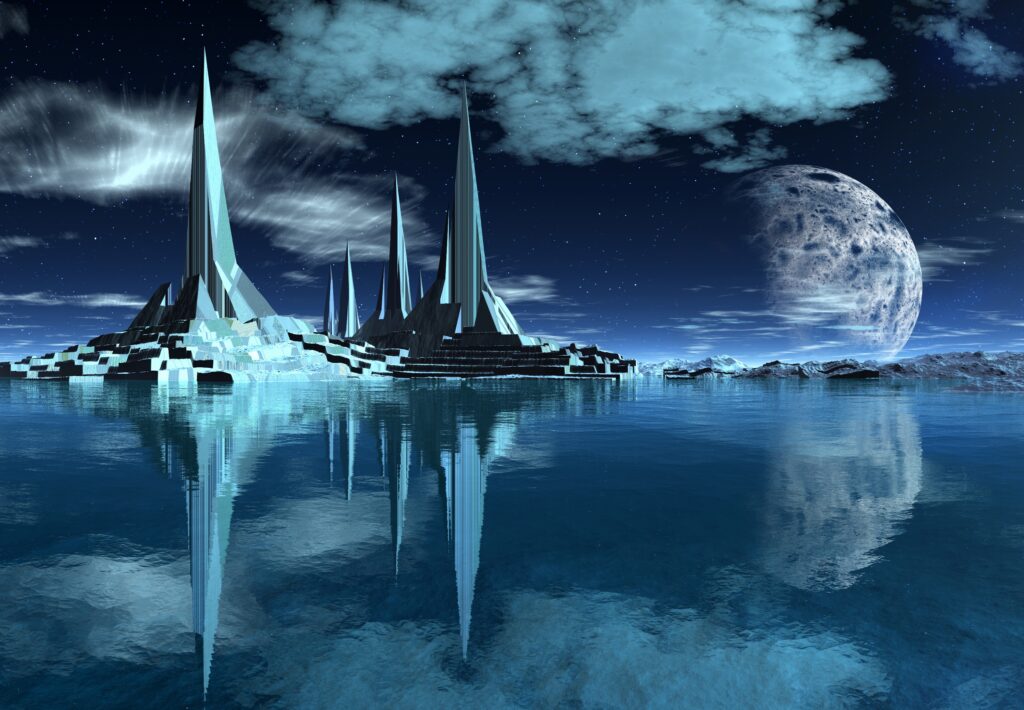Aliens on Venus

Well, it’s not the planet we expected, but it might be the planet we get.
Recent research has come out suggesting that our near neighbor Venus might be hiding a little more than we ever expected, i.e. alien life!
Now admittedly, this is indirect evidence, and even the authors of the paper go out of their way to highlight that they haven’t actually proved alien life, like this quote from the conclusion: “Even if confirmed, we emphasize that the detection of PH3 is not robust evidence for life, only for anomalous and unexplained chemistry.” But I like to take a more optimistic (is that the right word?) view.
Read the article: https://www.nature.com/articles/s41550-020-1174-4
The Science
This paper used spectroscopy which can be quite a complex technique, but the idea is that you can detect energy signatures at different wavelengths from different molecules. This is made more complex when looking at other planets because of course they’re moving, and earth is moving, and all of this movement has an effect on wavelengths. That’s all a bit beyond me but the authors give EXTENSIVE details on how they processed their data, should you be interested.
The molecule they searched for was Phosphine (PH3). A simple little molecule, but one that’s not usually present in ‘oxidising’ environments [scientific term, basically relates to the relative abundance of oxygen vs. hydrogen]. So these researchers pointed a basic instrument at Venus, expecting to get a background value for the ‘real’ search. But low and behold! They got a signal. A significant one…
So they jumped on a bigger better instrument to make sure.
It was still there!
Credit to the researchers here, they went through extensive effort to check and recheck their data (all details in the paper if you want to read it). Then they went through every possible explanation they could for how the phosphine got there.
You see, phosphine can come from volcanic activity, or random reactions, or solar debris, but the levels detected (~20 parts per billion), don’t fit with any of those. Basically, given what we know about Venus’ environment, the amounts of phosphine produced by those methods isn’t enough.
That leaves… life…
Microbes on Earth produce phosphine. In fact, our own atmosphere has detectable phosphine for just that reason.
So as the authors of the paper say, while this isn’t conclusive proof of life, it does make it one of just a handful of option: life, unknown geothermal or photochemical processes, some other unknown chemistry??
What Next?
Well the next step is to find the source of this phosphine. The ideal method would be to do a ‘scoop’ of the relevant atmospheric layers and see if we pick up any microbes. The challenge here is contamination. Imagine trying to get a spaceship AND all the equipment required to detect microbes into space, then to Venus without having any microbes from Earth on it… near impossible. And we have extremophiles that can survive in space. Finding a way to eliminate this contamination is one of the biggest hurdles to achieving a ‘scoop’, but I think it’s the best way of investigating this problem further.
What does it mean?
Funnily enough, Carl Sagan suggested the possibility of life in the clouds of Venus all the way back in the sixties (https://www.nature.com/articles/2151259a0). Because while the surface might be a boiling hot desert with sulphuric acid rain, it turns out the atmosphere is quite mild, with temperatures and pressures not that different to those on Earth.
So it’s not so crazy to think that there might be aliens there.
It’s pretty safe to assume there aren’t whole cities and superstructures floating around there though, we’ve taken a lot of photographs of Venus over the years. But it’s entirely possible that there’s an ecosystem of microbes.
I for one welcome our Alien Overlords given the current state of the world.
Do the mild conditions of Venus’ atmosphere make it a possible destination for future colonization? Maybe. Although how to keep cities floating in mid-atmosphere is an engineering question I don’t think we’ve quite answered yet.
It is cool to imagine giant cities floating over an acid-covered planet though. That would make for some spectacular photos!
Needless to say, this is a very exciting discovery and I can’t wait for follow-up studies to see whether this phosphine comes from some unknown chemical process, or if we really have discovered aliens right next door.
What do you think; aliens or chemistry [and where is the line between the two]?
—————————————————–
Join the Crew. Be Part of Something.
Would you like a place to talk with like-minded people?
Would you like to read my books as they’re being written?
Would you like personalised copies of each new book, with a special note, just for you?
Then consider joining me on Patreon. This site lets you support creatives from as little as $1/month.
Plus, it comes with lots of bonuses, including daily updates from me and access to a private Discord server.
Check it out: https://www.patreon.com/SaffronBryant
